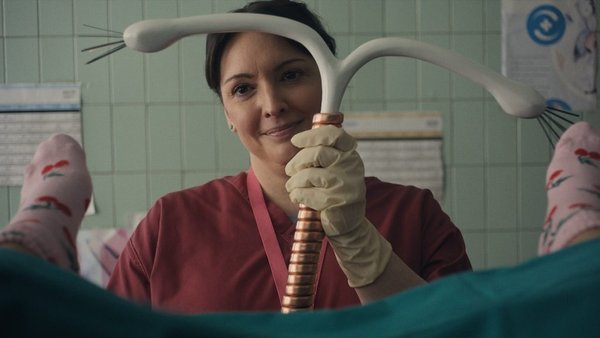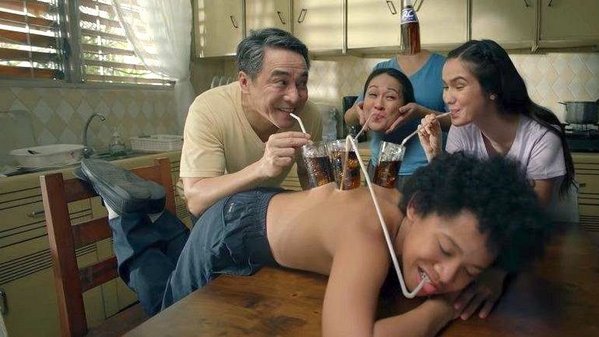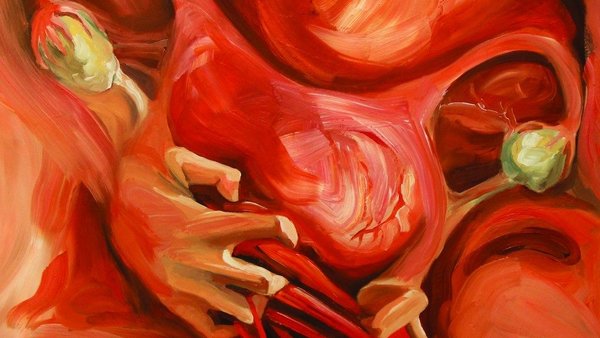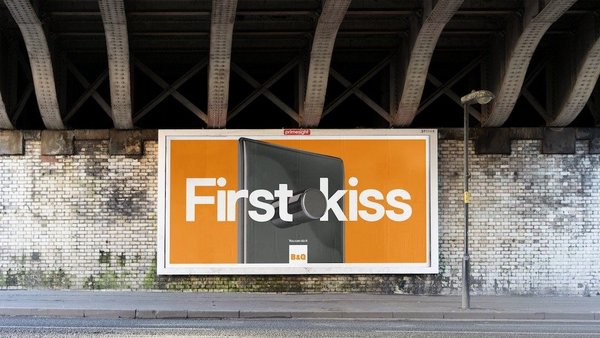Insight & strategy
The strategy behind Axe’s Power of Sweetness campaign /
How Axe ditched predictable fragrance ads for surreal humour, targeting Gen Z with killer teddy bears and an insightful take on young men's attraction anxieties
Unilever-owned fragrance brand Axe (marketed as Lynx in the UK, Ireland, New Zealand and Australia) latest irreverent campaign The Power of Sweetness introduces its latest sweet-smelling fragrance, with a series of ads leaning into absurd humour to highlight the irresistible power of scent.
Created in partnership with LOLA MullenLowe, the campaign delivers a series of exaggerated scenarios where an unexpectedly strong reaction to the new fragrance becomes the comedic focal point.
The ads feature playful yet surreal moments of jealousy – where even a baby, a teddy bear, and a pet dog can’t handle the allure of the scent.
This initiative builds upon Axe’s The Power of a Fragrance platform, launched in 2024 with notable films like Robbery and Funeral, which similarly used oddball humour to emphasise the impact of scent.
The campaign is set to roll out across key global markets, including Mexico, Argentina, the UK, and Australia. Beyond traditional platforms like TV, digital, and cinema, Axe is extending its reach with out-of-home ads, immersive audio experiences, and interactive activations designed to maximise audience engagement. Social media and influencer content is also playing a crucial role in amplifying the campaign’s impact.
In tandem with its Power of Sweetness campaign, Lynx launched a series of 10-second short-form ads promoting its new All Over Body and Lower Body Sprays. These spots, also developed with LOLA MullenLowe, use similar playful humour to address body odour, wit scenarios such as a basketball player attracting unexpected attention mid-dunk.
To learn more about the repositioning of the iconic fragrance brand, Contagious sat down with Caroline Gregory, global brand director, Axe, Federico Duberti, global business leader Axe & personal care at Interpublic Group (IPG), and Tomas Ostiglia, executive creative director, LOLA MullenLowe.
The full interview is free for Contagious IQ subscribers here, with the team revealing how universal insights unlock global reach, collaboration is key and why you shouldn’t influence the influencers – but here you can learn how Axe found its edge again and used to humour to cut through advertising noise.
Tell us about the Axe brand.
Caroline Gregory: We’ve been on a journey with the brand to re-find its edge. In 2021, we brought the brand back to being about fragrance – the brand had lost its way in the years prior to that, and we weren’t even sure what the brand functionally was about. We did the work of bringing the brand back to fragrance, which still holds the same relevance in young guys lives today as it did when it was incepted back in 1983.
Young guys still have the same self-doubt that holds them back in those moments of attraction – that universally hasn’t changed. But since that repositioning, we’d struggled to find the edge; we’d struggled to find the humour in the brand, and so through the work with these guys at LOLA Mullenlowe and IPG, we’ve been on a journey to try to simplify the brand and ultimately re-find the humour. And that started last year through the work with Robbery, and now we’re continuing that journey.
Caroline Gregory, Axe
Tell us about Axe’s target market.
Gregory: One of the big things, talking to young guys, is learning from them about the role that fragrance plays in attraction. Something we learned last year was that not only does fragrance give them a bit more confidence in those moments, but also that young guys, with their self-doubt, don’t know what to do, and therefore what they often do is nothing. So there’s a complete lack of effort.
When you speak to young girls, what they’re saying is just any sort of effort would be a great thing, and actually for them, fragrance can be that thing. That was a wonderful ‘aha’ moment for us, because obviously it’s like fragrance can do more than just give [young men] confidence. It’s actually an ‘effortless’ effort and that is a signal.
It gives us a lot of playing ground in terms of fragrance that can change it all for young guys in the moment – then these guys [Federico and Tomas] take it to its absolute extreme levels in humour. And they keep making me uncomfortable all the time putting those edges of humour that we very much need to do, because obviously we have an audience that is not interested in advertising, exceptionally difficult to reach, and cutting through with them is difficult.
The Power of Sweetness ads are amazing – they function like silent movies.
Ostiglia: We are really obsessed with simplicity – not simplicity as a simplification in a bad way, but simple as in pure. When you go brutally simple. There’s nothing stronger than that. You know it works.
Duberti: We really have no limits, as long as we can find a nice ‘attraction’ story triggered by fragrance in an Axe way, anything goes. Of course, it all needs to feel like the same brand, but it’s not like it has to have the same colour palette – we have a bit of freedom on that. It all feels Axe, to be honest. And that’s a great thing. It all feels Axe even though, from a storytelling standpoint, they’re quite different. And that’s intentional.
Ostiglia: Using cinematic, interesting characters, we follow the comedy rules, great scripts, cinematic stories… The DoPs that we are using in all of these campaigns are amazing, and the directors are fucking crazy and over the top, and we are doing the opposite of what you should do for that story. Why? Because it’s funny. It needs to be funny. If it’s funny, that’s the main rule.
Caroline Gregory, Axe
How did you manage to land on humour that could travel to so many different markets?
Ostiglia: Don’t be afraid to use stereotypes at some point because there are some stereotypes that you can recognise. There are universal kinds of fears that we have seen 1,000 times in film and they are more connected to a cultural kind of idea that trying to portray real life characters that people can relate to.
We look to a universe that is a little bit more cultural and that plays with stereotypes sometimes, but it in a way that is interesting. Different markets will appreciate different things, but at the end of the day, it will work, because it’s a really simple and global story of attraction.
Duberti: With this tone of voice, of humour and absurdity and exaggeration, in a way, I think you also detach a bit from reality. So when people in different parts of the world see the ads, they are not thinking, ‘Oh, this doesn’t look like a person in my situation.’ People disconnect from that, because they understand that this is fiction, it’s an exaggeration. That’s why I think, it’s working quite well everywhere.
You can show this to a 15-year-old in Mexico and a 25-year-old guy in Canada, in Germany or in India, and they all laugh, because it’s this universal thing that is detached from everyday reality. I think in the past we were trying to portray the target. In this case, we want to seduce the target and not portray them. We’re not putting a mirror in front of them.
Gregory: Axe is always a brand that has polarised its humour in any of the tests. It has never been a brand that appeals to absolutely everybody, and that’s a good thing. Its best work has always been a little bit polarising.
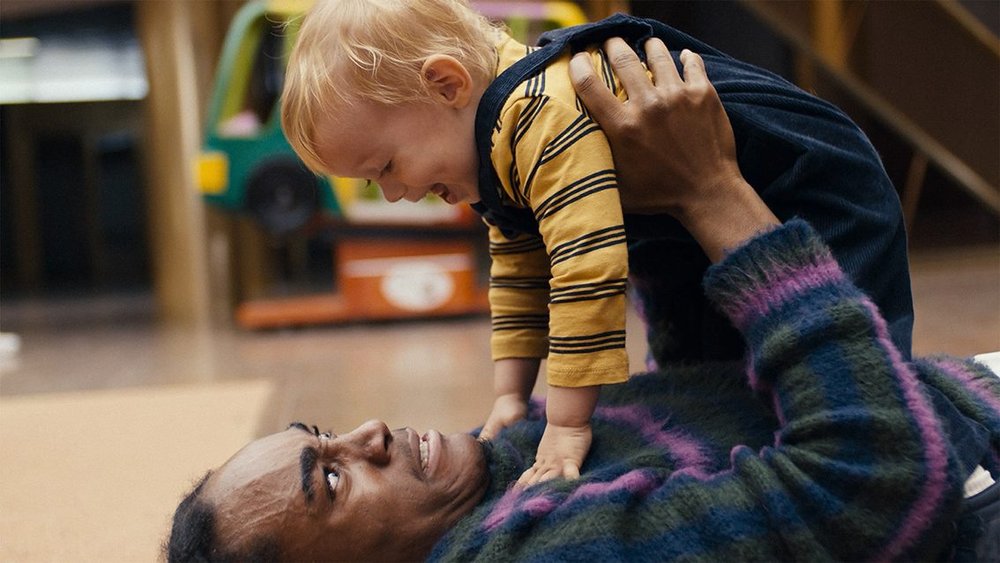
Want more of the same? /
We don’t just write about best-in-class campaigns, interviews and trends. Our Members also receive access to briefings, online training, webinars, live events and much more.
